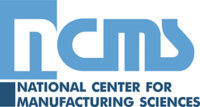CTMA Project #: 140158
Problem:
- Safety of flight issues due to stressed landing gear.
- A variety of landing gear components are failing without having reached their desired service lives.
- The failures are due primarily to stress corrosion cracking (SCC) and fatigue.
Benefit:
- Availability:
- Increased availability of the T-38 trainer as a result of few failures of landing gear trunnions.
- Business development on other platforms will greatly increase weapon system availability.
- Cost:
- $3.1M avoidance for the T-38 main landing gear trunnions.
- Reliability:
- Trunnions previous life span – 6 years; extended to 9-12 years.
- Cycle Time:
- No significant effect on cycle time.
- Safety:
- Increased safety of flight due to less fatigue fractures.
Solution/Approach:
- Peening is used to improve material resistance to stress-induced damage such as fatigue and SCC.
- The peening process compresses the material just below the surface, resulting in a residual compressed load.
- A laser pulse creates a shock wave that drives a residual stress up to 2-mm deep into the metal part. (8x conventional peening).
- The increased depth of peening helps prevent crack propagation, and imparts superior performance.
- Project developed a more economically favorable system, which pulses at a rate 20x faster than other available systems and can peen about one square meter of metal per hour.
DOD Participation:
- U.S. Air Force (Ogden Air Logistics Center)
- U.S. Army (Corpus Christi Army Depot)
Industry Participation:
- Metal Improvement Company
- Lawrence Livermore National Laboratory
- University of California-Davis
- NCMS




